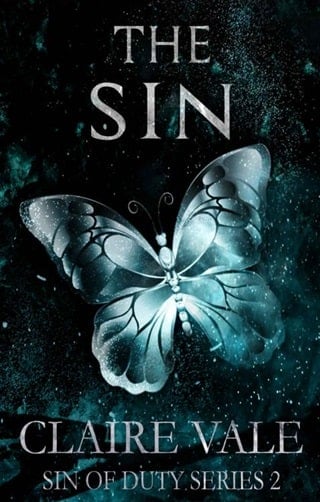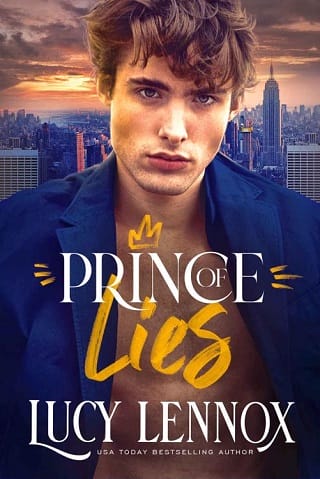2
The same four white-washed walls, one seamless door, one blinking red light.
Five glasses of water.
Two meals.
Seven bathroom breaks. Not much of an excursion, just a short walk down a bland corridor to a male washroom with a row of urinals and two stalls. The guard always cleared the room before walking me in, always stood right outside my stall. After the last visit, he'd threatened me with a chamber pot if I didn't get my weak bladder under control. I didn't have a weak bladder. I had hours and hours and hours and I needed those few minutes in some of those hours to not be sitting here alone with myself and my thoughts.
Eighteen hours.
For as long as I can remember, I've wanted to see outside the walls of Capra.
The fertility plague had decimated the human race. All that remained of the world was the Eastern Coalition—the walled town of Capra where I'd been born, the Smoke, the farms and the mines.
It was more than a century since the last child had been naturally conceived.
We lived by the grace of a carefully rationed store of frozen eggs that had been seized back in the old world order, in the early days of the plague when the Eastern Coalition had formed and the walls were built.
The Puritans believed the plague was a strike from God to punish the women and warn the men. God created man in his likeness to rule the earth. He created women as a companion and to procreate. The old, modern world had corrupted those roles and blurred the genders until they were barely recognizable, and God had sent the plague on our day of reckoning.
The Scientists believed evolution had snuck up on us. Too many generations of women abusing contraceptives and hormone medications, trying to trick time and biology, and finally our bodies listened. Our busy lives and successful careers did not include the time for bearing children and raising them. So our bodies had simply dropped that function.
Within the walls of Capra, we lived by the rule of male oppression and female suppression. All in the name of curing mankind. Of reversing history back to a simpler time when women were wives and mothers and nothing more.
Outside the walls, the overflow of men who couldn't make a place for themselves in town worked the farms, the mines, the factories. There were no children, no babies born, no families. The only women outside the walls were those who'd been removed from society.
And beyond that, beyond the walls and the Smoke and the farms, beyond the Eastern Coalition, lay the Outerlands, barren land that stretched into the dead world.
That's what I'd grown up knowing, and still, I imagined most of it was truth. But I'd seen with my own eyes that some of it was lies.
I'd hidden in the lockbox on the back of Roman's truck and he had—unknowingly—driven me outside the walls. I'd seen the trading post, Sector Five. I'd seen the river and the fence and the sea of tents on the other side. I'd seen the Outerlanders with their women and the children who shouldn't exist.
I remembered the prickled stares of those men, and the way they'd circled me, stalked me like prey…maybe they'd even being trying to herd me over the bridge.
The world outside the Eastern Coalition wasn't dead. It wasn't a good world, if what Roman said was true. If what I'd felt was real.
It wasn't a better world, but it wasn't a dead world.
 Fullepub
Fullepub 



